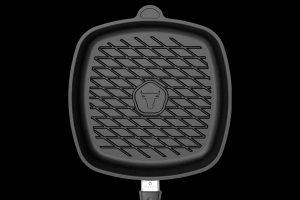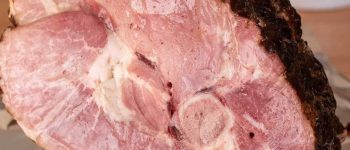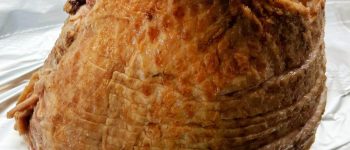Many steak fans say dry aged steaks taste the best from the grill. The smokey aroma excellently underscores the taste components. The trick and secret is in the grill – a perfect crust is king. There’s no room here for overcooked and dry meat – you’ve spent so much time and effort into the dry aging process, don’t throw it all away because of an ancient grill. If there’s no grill in sight, steaks can also be put into the pan, with some skill it tastes at least as delicious as grilled.
Beef prefers heat
Beef prefers a strong heat during the preparation. This is not just for dry aged steaks. The sharp frying develops smokey toasted aromas and the outside of the meat becomes beautifully crisp. So if choosing to pan your steak, it needs to properly heat up, and should be heat-resistant.
The right pan
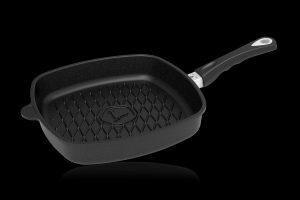 Every element dictates the end result: the right pan makes the taste of a good dry aged steak. NEVER use aluminum pans. On one hand, aluminum is suspected of being harmful to your health and is not sufficiently heat-loadable. Much better here are the stainless steel models or cast iron pans. When using cast iron pans, the dry age steaks do not stick in it either. The Steak Pan from DRY AGER combines all positive materials properties in one pan and delivers the best frying results.
Every element dictates the end result: the right pan makes the taste of a good dry aged steak. NEVER use aluminum pans. On one hand, aluminum is suspected of being harmful to your health and is not sufficiently heat-loadable. Much better here are the stainless steel models or cast iron pans. When using cast iron pans, the dry age steaks do not stick in it either. The Steak Pan from DRY AGER combines all positive materials properties in one pan and delivers the best frying results.
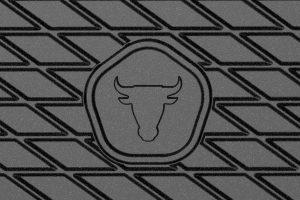 A ribbed base burns the typical pattern into the meat, whereby the DRY AGER pan can also score here: A bull’s head in the middle lends the steak a unique branding.
A ribbed base burns the typical pattern into the meat, whereby the DRY AGER pan can also score here: A bull’s head in the middle lends the steak a unique branding.
So, butter or oil?
Whether butter or oil is the better alternative, the answer is surprising for some, it is actually better to use butter, as it combines the aromas of the butter and the heat-responsiveness of the oil. Remember when panning it, ensure an even fry.
Now that we’ve decided how to cook the steak, preparation is key
Before cooking your dry aged steaks, it should rest. To change directly from the cold to the heat is also a shock to the system for the steaks. This results in fluid and proteins that make the finished steak grey and dry. The dry aged steaks should rest at room temperature for at least 30 minutes before they are placed in the pan or on the grill. Even if the finished steak comes back from the pan, it will still need to rest, and this should be for about 5 – 10 minutes before serving.
Now that we’ve discussed both methods – which one is the ultimate winner? Does one have an advantage over the other?
Tools are key, if you’ve got a high-quality pan like the DRY AGER Steak Pan then you’re well on your way to succeeding in a great steak dinner. If you are able to secure an Otto Grill you have an advantage. By setting the temperature up to 800°C, heating up for 3 minutes and searing on each side for 2 – 2.5 minutes (per side) in no time it will become a very regular main course for you.
